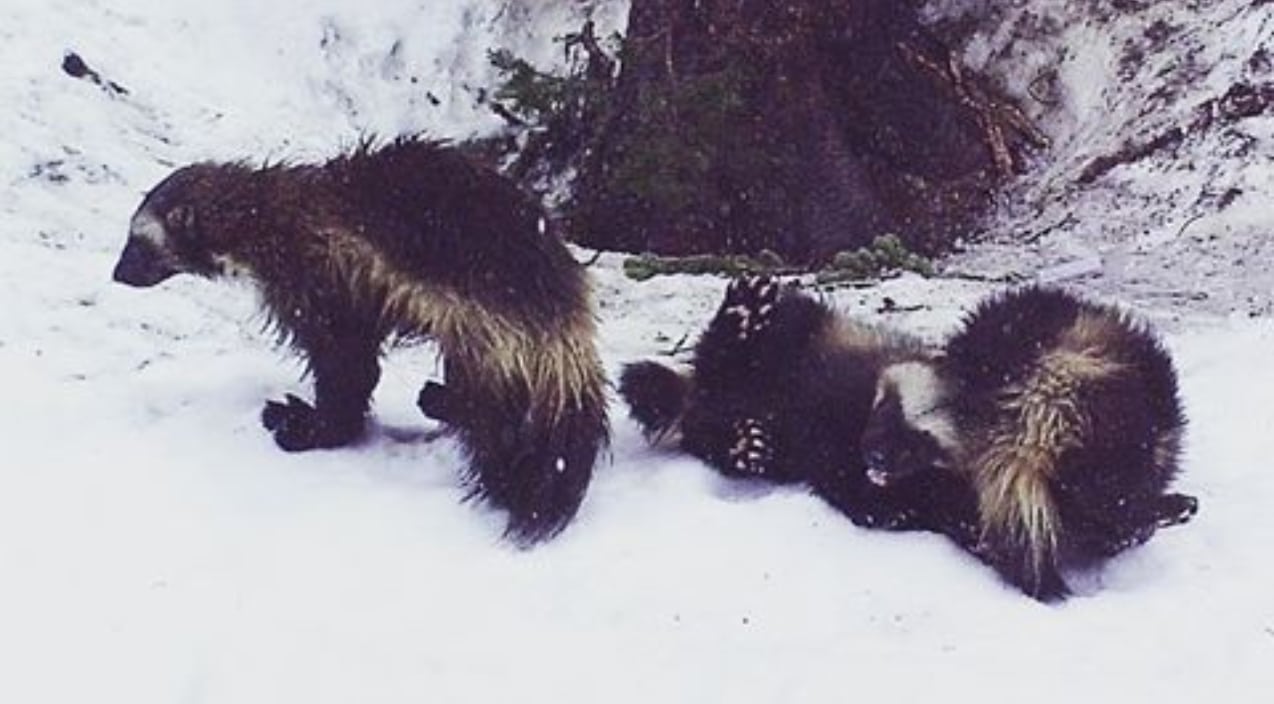The recent discovery in Mount Rainier National Park, Washington has got a lot of people excited.
https://www.instagram.com/p/CEN5usngygp/
Wolverines were spotted in the park for the first time in over one hundred years!
The wolverine family was caught on camera by scientists of the Cascades Carnivore Project. They counted three wolverines: a reproductive female and her two offspring called kits. The family was spotted climbing on a tree together by one of the camera stations installed in the park. This one was installed in 2018 specifically to photography and identify wolverines.
https://www.instagram.com/p/CEH0jI0gYDa/
This news was very pleasing to hear to the park’s superintendent Chip Jenkins because wolverines are extremely rare in the United States.
‘It’s really, really exciting. It tells us something about the condition of the park. Many species that live at high elevation in the Pacific Northwest, such as the wolverine, are of particular conservation concern due to their unique evolutionary histories and their sensitivity to climate change,” Chip told CNN Travel.
https://www.facebook.com/cascadescarnivoreproject/photos/a.787715171338390/2623975154379040
National Geographic highlighted in July 2019 that Wolverines are very likely to suffer from climate change. These fierce carnivores are meant to live in a cold environment. If they are forced to live in a warmer environment it’s dangerous to their reproduction system which can lead to their potential extinction.
“Wolverines serve as indicators of future changes that will eventually affect more tolerant species and, as such, make good models for conservation in a changing world,” Dr. Jocelyn Akins of the Cascades Wolverine Project explained.
Wolverines Return to Mount Rainier National Park After More Than 100 Years, News Release: https://t.co/qmCkTDsFAU
Video of three wolverines at the end of a snowfield then running through a meadow into a forest. Credit: Travis Harris -kl pic.twitter.com/ALwJoAOmTG
— MountRainierNPS (@MountRainierNPS) August 20, 2020
The Washington’s National Park Fund shared interesting information to the park visitors on how to recognize these small animals, to learn more about them and recreate safety without disturbing them. Visitors are asked to share any pictures or videos they take of wolverines to Cascades Wolverine Project to help better study them and monitor their comeback.

